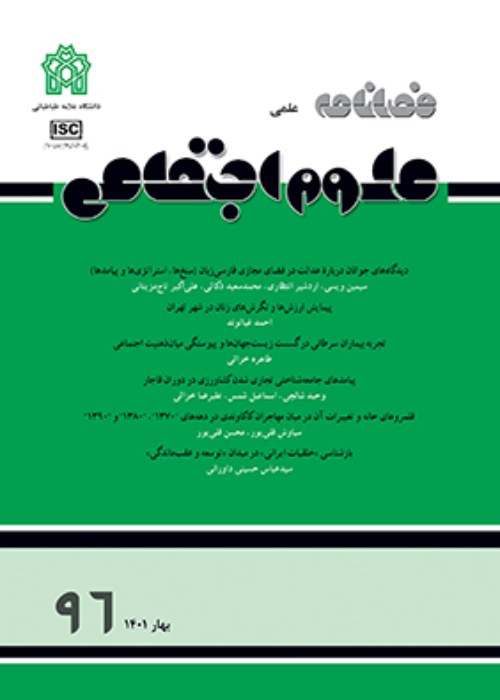The Role of Local Knowledge and Communal Water Management System in Sustainable Rural Livelihood:
Author(s):
Abstract:
Traditional communal management systems and local people's experience and knowledge have been underlined in more recent sustainable rural development and livelihood paradigms. Recent studies on local knowledge and traditional production systems have resulted in a shift in general perceptions, moving them away from considering native farmers as weak managers towards having more appreciation for local people and their knowledge. These are people whose attitudes and actions towards their environment are considered sustainable and locally compatible (Fujisaka 1986). A livelihood is deemed sustainable if it has the ability to cope with and recover from stress and shock (Chambers & Conway 1992:6). This view, thus, sheds light on the significant role traditional communal water management and dredging system of Sistan area plays in creating a sustainable livelihood in the area. Observing the condition of Sistan rural areas, one can conclude with certainty that the main factor behind the current condition (desertification of Sistan) is the destruction of traditional production systems which were based on local knowledge and compatible with local climatic conditions.Currently, one of the most crucial challenges rural economics of Sistan face is the annual degradation of agricultural fields as a result of lack of water resources, congestion of sediments and demission of agriculture as a source of livelihood due to the inability of new rural management systems in provision and management of water. Inaccurate adoption of new technologies and desertion of local experience and knowledge have even worsened the situation and lead to unemployment, low income, poverty and immigration. Under the traditional management system of Sistan, thousands of local farmers dredged all water channels, rivers and streams in a three-month-long process called Hashr in order to transfer water and provide for cultivation of about 100000 agricultural fields of the area. However, today, desertion of local experience and knowledge of traditional managers of the area is considered the main factor behind the non-sustainability of agricultural-based livelihoods in the area.The main objective of this research is to introduce Hashr as a traditional communal technique and system and recognize the role of local knowledge and practical experience of communal traditional management in sustaining agricultural-based livelihood in Sistan area. This research is descriptive–analytical and has relied on documentary methods for acquiring and analyzing the relevant data. In some parts of the study, field observation and purposeful interviews with local informants and elders of the area have been adopted to gather the required data- whose names will be mentioned at the end of the article. Exploitation of local experience and knowledge along with the adoption of new technology within the framework of communal management could revive and improve the social and economical conditions of the area.
Keywords:
Language:
Persian
Published:
Journal of Social Sciences, Volume:19 Issue: 1, 2012
Page:
1
magiran.com/p1047507
دانلود و مطالعه متن این مقاله با یکی از روشهای زیر امکان پذیر است:
اشتراک شخصی
با عضویت و پرداخت آنلاین حق اشتراک یکساله به مبلغ 1,390,000ريال میتوانید 70 عنوان مطلب دانلود کنید!
اشتراک سازمانی
به کتابخانه دانشگاه یا محل کار خود پیشنهاد کنید تا اشتراک سازمانی این پایگاه را برای دسترسی نامحدود همه کاربران به متن مطالب تهیه نمایند!
توجه!
- حق عضویت دریافتی صرف حمایت از نشریات عضو و نگهداری، تکمیل و توسعه مگیران میشود.
- پرداخت حق اشتراک و دانلود مقالات اجازه بازنشر آن در سایر رسانههای چاپی و دیجیتال را به کاربر نمیدهد.
In order to view content subscription is required
Personal subscription
Subscribe magiran.com for 70 € euros via PayPal and download 70 articles during a year.
Organization subscription
Please contact us to subscribe your university or library for unlimited access!


